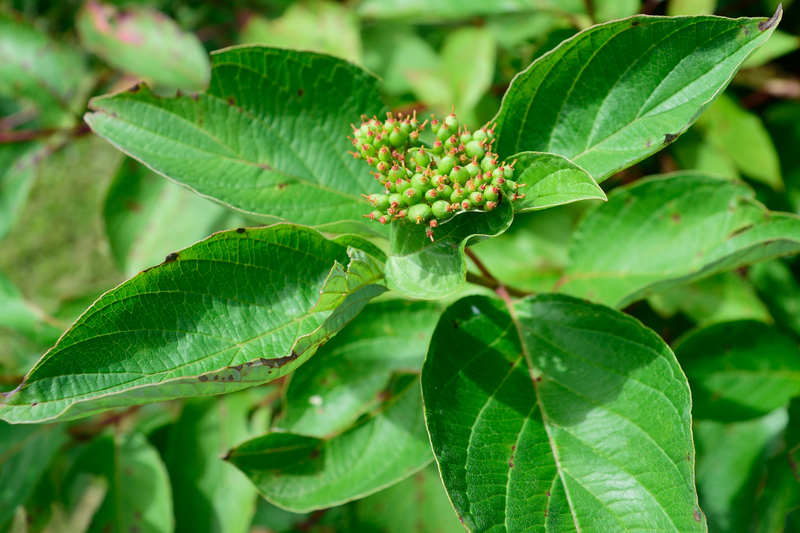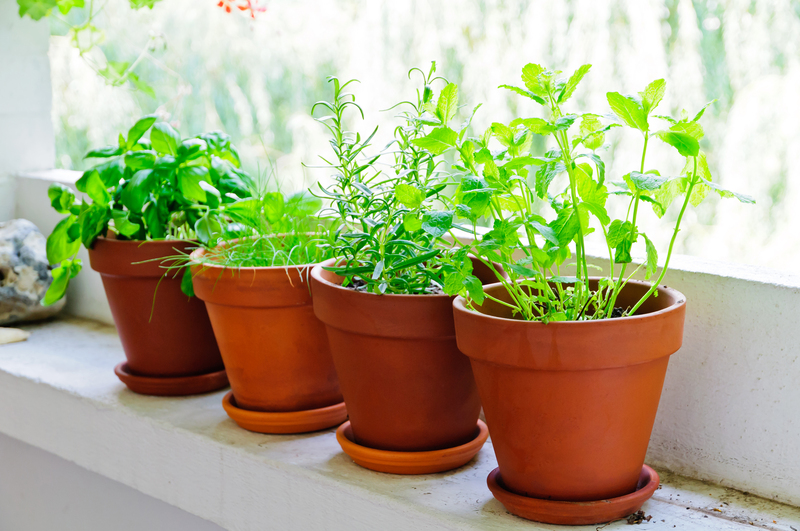Garden Like a Pro: 9 Essential Tips Every Beginner Needs
Posted on 19/09/2025
Garden Like a Pro: 9 Essential Tips Every Beginner Needs
Are you looking to transform your backyard into a lush, thriving oasis? Gardening for beginners can seem daunting, but with the right guidance, anyone can garden like a pro. Whether you want to grow vibrant flowers, tasty vegetables, or both, mastering a few essential gardening tricks will set you on the path to success. In this article, we'll cover 9 must-know gardening tips that provide a strong foundation for aspiring green thumbs. From soil preparation to plant care and beyond, here's how to start your garden with confidence and grow it like a seasoned gardening expert.
Why Start Gardening?
Gardening isn't just a fulfilling hobby. It's a gateway to a healthier lifestyle, an avenue for creative expression, and a chance to connect with nature. Here are just a few of the many benefits of learning to garden like a professional:
- Stress Relief: Gardening is therapeutic and proven to reduce anxiety.
- Fresh Produce: Grow your own fruit, herbs, and veggies for a tastier and more nutritious diet.
- Exercise: Digging, planting, and weeding keep you active.
- Contribute to Biodiversity: Gardens provide habitats for birds, bees, and butterflies.
- Beautify Your Space: Create your own tranquil retreat right outside your door.


Garden Like a Pro: 9 Essential Tips Every Beginner Needs
1. Choose the Right Location
The first step to successful gardening is picking the best spot. Consider these key factors:
- Sunlight: Most vegetables, herbs, and flowers need at least 6 hours of sunlight daily. Observe your yard at different times to find the sunniest areas.
- Accessibility: Choose a spot you can reach easily for watering, weeding, and harvesting.
- Protection: Avoid spots prone to strong winds or heavy foot traffic.
Garden novices often overlook the impact of location--start right and you'll avoid future headaches!
2. Know Your Soil
Understanding your soil type is fundamental for any beginner gardener. Healthy garden soil supports healthy plants. Start by:
- Testing the pH: Most plants prefer a slightly acidic to neutral pH (6.0-7.0). Test kits are available at garden centers.
- Checking Soil Texture: Sandy and clay soils may need amendment. Loamy soil, a balance of sand, silt, and clay, is ideal for most gardens.
- Enriching with Organic Matter: Add compost or well-rotted manure to nourish your plants and improve drainage.
Pro Tip: Spend some time improving your soil before planting. Your garden will thank you.
3. Start Small and Simple
It's easy to get carried away with ambitious plans, but successful beginner gardening starts with a manageable approach:
- Pick a modest area (such as a 4'x4' bed) or a few pots for container gardening.
- Focus on easy-to-grow plants like lettuce, radishes, marigolds, or basil.
- Gradually expand as your skills and confidence grow.
Remember: A small, flourishing garden is more rewarding than a large, neglected one!
4. Select the Right Plants for Your Region
Plants thrive when their needs match environmental conditions. Research what grows well in your USDA Hardiness Zone or local climate:
- Visit local nurseries for advice on native or well-adapted species.
- Choose disease-resistant and beginner-friendly varieties.
- Read plant tags and seed packets carefully before purchasing.
Matching plants to your region prevents disappointment and boosts your chances of gardening success.
5. Master the Art of Proper Watering
Watering may seem straightforward, but it's a common stumbling block for new gardeners. To garden like a pro, remember to:
- Check soil moisture before watering. Stick your finger an inch deep; water only if it feels dry.
- Water at the right time: Mornings are best to minimize evaporation and prevent fungal diseases.
- Avoid overhead watering: Wet leaves can encourage disease. Use drip irrigation or water at the base.
- Stay consistent: Most plants prefer deep, infrequent watering over frequent, shallow splashes.
Proper watering builds strong roots and resilient plants--a true secret to professional gardening!
6. Mulch for Healthy, Low-Maintenance Beds
Mulching is an essential gardening skill that beginners, as well as pros, use for simpler, healthier gardens:
- Suppress weeds: Mulch blocks sunlight, reducing weed growth.
- Retain moisture: Helps soil stay damp during hot spells.
- Regulate temperature: Keeps plant roots cool in summer and warm in winter.
- Add organic matter: Natural mulches break down, enriching your soil.
Spread 2-3 inches of mulch (like shredded bark or compost) around plants, avoiding direct contact with stems for best results.
7. Feed Plants with the Right Nutrients
Just like people, plants need proper nutrition. To get lush, productive growth:
- Choose slow-release organic fertilizers such as compost or worm castings for steady nourishment.
- Follow feeding instructions: More fertilizer isn't always better--stick to recommendations.
- Pay attention to signs of deficiency: Yellowing leaves, slow growth, or poor flowering may signal nutrient needs.
Fertilizing is an art. Learning when and how much to feed separates beginner gardening from professional-level plant care.
8. Learn the Basics of Pruning & Deadheading
Pruning and deadheading encourage healthier, fuller growth and keep plants tidy. Here's how:
- Remove dead or diseased parts: This prevents the spread of pests and diseases.
- Pinch off spent flowers: Encourages new blooms on annuals and some perennials.
- Shape shrubs and bushes: Regular pruning promotes bushier, more attractive plants.
Don't be afraid to cut back! Most plants rebound quickly and grow better than ever.
9. Observe & Keep Learning
The best gardening experts are keen observers. Spend quality time in your garden every day to:
- Watch for pests, disease symptoms, and signs of stress.
- Notice what's working--and what isn't.
- Note changes in growth, flowering, or fruiting to adapt your care.
- Join local gardening groups or online forums to exchange tips.
Adaptation is key. Every season provides new lessons. The pros never stop learning--and neither should you!
Conclusion: Your Journey to Pro Gardening Starts Now
With these 9 essential tips for beginner gardeners, you're well on your way to a rewarding, beautiful, and productive garden. Remember to start small, pay attention to your plants' needs, and most importantly--enjoy the process.
Gardening like a pro isn't about perfection. It's about progress, curiosity, and a love for growing things. With patience and the right approach, your garden will blossom--and so will your confidence as a gardener.
Frequently Asked Questions About Gardening Like a Pro
- What is the easiest plant for beginners to grow?
Some of the easiest options include radishes, lettuce, marigolds, sunflowers, and basil. - How often should I water my plants?
It depends on weather and soil. Test with your finger--a general rule is when the top inch of soil is dry. Most gardens need watering 1-3 times per week. - Should I grow from seeds or seedlings?
Seeds are more affordable and offer more variety. Seedlings give you a head start and are more forgiving for beginners. - How do I keep pests out of my garden?
Try natural solutions first, like encouraging beneficial insects or using floating row covers. Monitor your garden regularly to prevent major issues.
Now get your hands dirty, have fun, and watch your skills--and your garden--grow. Happy gardening!
Latest Posts
Enhance Your Garden with Cozy Seating Spots
Garden Like a Pro: 9 Essential Tips Every Beginner Needs
Evergreen Climbers for Shade: Nature's Drifters for Shadowed Nooks

